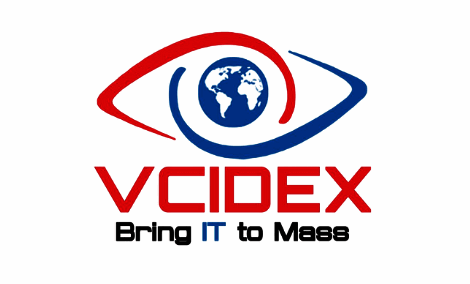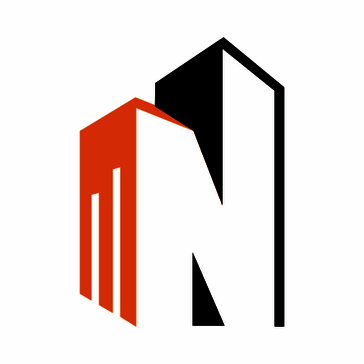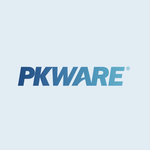What Is Data Security Software?
A vital tool for preventing theft, damage, and illegal access to sensitive and private data is data security software. Effective data security measures are now crucial for both individuals and enterprises due to the rise in cyberthreats and data breaches. To protect data from internal abuse and external threats, data security software offers a number of capabilities, including firewalls, access controls, encryption, and backup and recovery systems.
Encrypting data, which entails transforming plain text into a coded format that can only be viewed with a decryption key, is one of the main purposes of data security software. This guarantees that unauthorized parties cannot access or use the data, even if it is intercepted. By defining and controlling user access to specific data, access controls help administrators make sure that only individuals with the proper authorization can view or alter critical data.
Another crucial component of data security software is a firewall, which serves as a partition between a reliable internal network and external networks like the internet. In order to stop illegal access and any cyberattacks, they keep an eye on and manage all incoming and outgoing network traffic. Data security software also provides backup and recovery systems to guarantee that crucial information may be recovered and restored in the case of a data breach or loss.
In the event of a disaster or system breakdown, these technologies enable speedy recovery and generate safe data backups. All things considered, companies and people that wish to safeguard their data and keep the confidence of their clients must invest in data security software.
It helps companies adhere to data privacy laws and stay out of trouble with the law in addition to protecting sensitive data. Selecting a data security software solution that provides the required features and degree of protection requires careful consideration of your organization's unique demands and security standards.
What Are The Recent Trends In Data Security Software?
Strong data security procedures are becoming more and more important as technology develops. The risk of cyberattacks and data breaches has dramatically increased as more and more private information is shared and kept online. The data security software market has therefore changed and adjusted to offer cutting-edge solutions for companies to safeguard their sensitive data.
The application of machine learning (ML) and artificial intelligence (AI) technology is one of the most recent developments in data security software. Potential dangers can be identified and addressed more quickly because to these technologies' ability to analyze vast volumes of data and spot irregularities. Furthermore, cloud-based data security solutions have grown in popularity recently.
This enables easier access for companies with remote personnel and more scalable and flexible alternatives. The deployment of a zero-trust security architecture, which mandates that all users both within and outside of a company's network provide the proper credentials before they can access any data, is another trend. This method greatly lowers the possibility of a data leak brought on by a hacked user account.
Implementing mobile device management (MDM) software has become more popular as remote work and the use of personal devices for work reasons have grown. To guarantee that business data is safe even on personal devices, these products include remote access control, data encryption, and data wiping capabilities. The use of blockchain technology is another development in data security software.
Hackers find it difficult to access or alter data thanks to this technology, which serves as a safe and impenetrable mechanism for transmitting and keeping private information. To sum up, data security software is constantly changing and adapting to stay up with the constantly shifting cybersecurity environment. Businesses may safeguard their data and digital assets from possible dangers by keeping abreast of current trends and putting the newest technologies into practice. When selecting the best data security software for their requirements, businesses must carefully take these developments into account.
Benefits Of Using Data Security Software
In the current digital era, data security is a top priority for both individuals and enterprises. Protecting sensitive data from unwanted access has become essential due to the increase in cyber threats and data breaches. Data security software is useful in this situation. The term "data security software" describes a broad category of instruments and programs intended to protect private data from theft, harm, and unwanted access. It is a thorough method of safeguarding data through the use of tools like monitoring, access control, and encryption.
1. Guards Against Online: Dangers Software for data security is made to guard against several kinds of online threats that could jeopardize private information. This covers phishing scams, malware, ransomware, and more. The risk of cyberattacks can be considerably decreased by putting in place several security layers, including firewalls, intrusion detection systems, and anti-virus software.
2. Guarantees Adherence: Organizations must abide by a number of data protection laws and regulations in the highly regulated corporate world of today. Regulations like GDPR, HIPAA, and PCI-DSS can be complied with with the aid of data security software. It assists with putting the required security measures into place and giving auditors the documentation they need.
3. Preserves Private Information: A variety of functions are available in data security software to shield private data from unwanted access. One example of this is encryption, which jumbles the data so that someone lacking the decryption key cannot read it. Sensitive data is further protected by additional features including data masking, access controls, and secure file sharing.
4. Increases Efficiency And Productivity: Businesses can save time and money by automating several security procedures with data security software. Employee concentration can be directed onto more important work as a result, increasing output and efficiency. Secure file sharing features also make it simple for staff members to work together and exchange private data without jeopardizing its security.
5. Minimizes Monetary Losses: Businesses may suffer large financial losses as a result of data breaches. By decreasing the possibility of a breach, data security software can assist in lowering these risks. As a result, businesses may avoid expensive penalties, legal bills, and reputational harm.
Important Factors To Consider While Purchasing Data Security Software?
Selecting the best security software is essential for safeguarding your priceless data. Any firm must invest in dependable data security software given the increase in cyberthreats and data breaches. Making the best decision, though, might be difficult given the abundance of options on the market. Here are some crucial things to think about while buying data security software to guide you through the process:
1. Features And Capabilities: Prioritize finding data security software with features and capabilities that meet your unique requirements. Make sure the program has all the capabilities you need to protect your data, from encryption and data backup to threat detection and access controls.
2. Performance And Reliability: You require data security software that is both dependable and effective in high-pressure scenarios. Seek out software with a track record of success and that other firms trust. To make sure the program is dependable and performs well, think about reading reviews and asking other companies for recommendations.
3. Compatibility: Data security software ought to work in unison with your current architecture and processes. Prior to buying, make sure the program is compatible with your gear, apps, and operating system. This will guarantee a seamless implementation and spare you from any compatibility problems.
4. Ease Of Use And Management: It shouldn't be too difficult to use and administer the program. It should require little user training and have an intuitive UI. It should also have capabilities like remote management and automation to assist you make your data security procedures more efficient.
5. Scalability And Flexibility: Your data expands along with your business. As a result, selecting data security software that can grow with your data is essential. Additionally, it should be customizable so that you may adjust it to meet your evolving demands.
6. Pricing: The software's price should be taken into account, but it shouldn't be the only determining factor. Establish your spending limit and search for data security software that provides the most value. To make an informed choice, take into account the long-term costs of upgrades, maintenance, and licensing.
7. Customer Support: The quality of a data security program depends on its support staff. Seek out a supplier who provides dependable round-the-clock customer service to assist you in resolving any potential problems. To get the most out of the software, take into account the resources and training that are available for your team.
What Are The Key Features To Look For In Data Security Software?
Having the appropriate software installed is essential for safeguarding your priceless data. Selecting the best data security software can be difficult given the growing risk of cyberattacks and data breaches. You can, however, make an informed choice that will assist protect your sensitive data if you know what the important elements to look for are. When buying data security software, keep the following features in mind.
1. Encryption: This is one of the most important aspects of data security software. To stop unwanted access, plain text data is transformed into a code using this method. To make sure that your data is secure even if it ends up in the wrong hands, look for software that use robust encryption methods like AES or RSA.
2. Access Controls: Access controls are yet another crucial component to search for. This enables you to restrict who can access sensitive information and what they can do with it. Strong access controls should lower the chance of data breaches by allowing you to set permissions and limitations for specific people or groups.
3. Data Backup: One of the most important components of data security is data backup. To guarantee that your data is secure in the case of a system breakdown or cyberattack, the program should include frequent backup solutions, such as cloud storage. While scheduled backups can guarantee that your data is always current, automated backups can also help you save time and work.
4. Real-time Monitoring: To identify any suspicious activity or access attempts, real-time monitoring is crucial. If a possible threat is identified, this function can give you alerts and notifications so you can respond right away.
5. Multi-Factor Authentication: This security feature asks users to verify their identity using multiple methods. For example, this can incorporate a fingerprint scan and a password, giving your data an additional degree of security.
6. Compliance Management: Adherence to data security requirements may be required, contingent on your industry. Select software with compliance management tools, which will make following laws and regulations simpler and eventually shield your company from fines and penalties.
7. User-Friendly Interface: Your data security software should have an intuitive and simple user interface. In addition to saving time, this will lessen the possibility of making a crucial mistake that could jeopardize your data. You can make sure that the data security software you select satisfies the requirements of your company and offers the required protection for your private data by taking into account these important characteristics. When choosing, don't forget to take into account aspects like cost, scalability, and customer service. You may rest easy knowing that your data is safe and secure if you have the proper data security software.
Why Do Businesses Need Data Security Software?
A vital tool for companies of all shapes, sizes, and sectors is data security software. It is intended to defend private and sensitive information against dangers such insider threats, cyberattacks, data breaches, and unintentional data disclosures. Data security software is essential to ensuring the safety and integrity of vital information in today's digital world, where data is the foundation of every enterprise.
Complying with numerous data protection rules and regulations, such as the California Consumer Privacy Act (CCPA) and the General Data Protection Regulation (GDPR), is one of the main reasons firms need data security software. According to these rules, businesses must put in place suitable security measures and protect personal data; otherwise, they risk facing harsh fines and penalties.
Additionally, companies require data security software to protect their brand and keep their clients' trust. Customers are now more conscious of and worried about the security of their data due to the rise in data breaches and cyberattacks. A company's brand image can be severely damaged by a single data breach, which can result in a decline in sales and clientele.
Businesses can also avoid financial costs from data loss or theft by using data security software. The average cost of a data breach in 2019 was $3.92 million, according to an IBM analysis. This is a substantial sum for any company. By identifying and stopping unwanted access to private data, data security software lowers the possibility of monetary loss.
The protection of trade secrets and intellectual property is another essential component of data security software. Industries that need to protect their sensitive data from competitors or fraudsters include technology, healthcare, and finance. Businesses may protect their intellectual property and avoid any financial and reputational harm by using data security software.
Aside from these benefits, data security software gives companies an extra degree of protection for their IT infrastructure. By monitoring network activity, enforcing access control regulations, and identifying system vulnerabilities, it can assist prevent thieves from gaining illegal access.
How Much Time Is Required To Implement Data Security Software?
Depending on the particular program and your organization's requirements, the data security software implementation process can change. The size and complexity of your data systems, the number of individuals that require training, and any requirements for integration or modification are some of the variables that could impact the timetable. It usually takes a few days to a few weeks to set up and install data security software for the first time.
This entails integrating the software with your current systems and setting it up to satisfy your unique security requirements. Training your team to use the program efficiently comes next after it has been implemented. Depending on the software's complexity and your employees' skill level, this could take a few hours to several days.
To lower the possibility of human error, it is crucial to make sure that all staff members who handle sensitive data have received the necessary training on how to operate the security software. To make sure the software is operating correctly and fulfilling your security requirements, it is also crucial to carry out extensive testing and troubleshooting prior to fully integrating it.
Generally, depending on the particular situation, the time frame for putting data protection software into place might vary from a few weeks to a few months. To guarantee a successful and seamless implementation process, meticulous planning and resource allocation are crucial.
What Is The Level Of Customization Available In Data Security Software?
Since it guarantees the privacy and security of sensitive data, data security software is a vital tool for both individuals and enterprises. Customizable data security software has become essential as technology develops further. Achieving optimal protection and efficiency requires the software to be able to be customized to meet certain demands and specifications.
Depending on the supplier and the particular product, several levels of customisation are available in data security software. To accommodate customers' varied needs, the majority of trustworthy data security software, however, provides a great degree of flexibility. Setting up distinct user roles and permissions is one of the main functions of adaptable data security software.
This lowers the possibility of data breaches by enabling companies to grant only authorized staff access to sensitive data. Businesses can also alter the software to conform to the security rules and compliance requirements of their sector. The capability to specify and set up data encryption techniques is an additional helpful feature.
This enables companies to select the encryption level for various data types based on how sensitive they are. This guarantees that information is safe even if it ends up in the wrong hands. Additional security layers like multi-factor authentication and data loss prevention measures can be integrated with customizable data security software.
These add-ons can be customized to meet the unique requirements of the company, giving their data an extra degree of security. Sometimes, users can establish bespoke notification alerts using data security software to alert them to any suspicious behavior or unauthorized access to their data. Businesses that handle extremely sensitive data and require prompt notifications in the event of a security breach may find this to be especially helpful.
Which Industries can benefit the most from Data Security Software?
Regardless of the industry, data security software is critical for all businesses. Data security software is even more important in certain businesses, though, because they are more susceptible to cyberattacks and data breaches. The industries that stand to gain the most from data security software and how it may assist safeguard their private information will be examined in this buyer's guide.
1. Healthcare Sector: The healthcare sector has been a popular target for hackers due to the proliferation of digital records and the growing usage of technology in this sector. Medical records are extremely important to cybercriminals because they contain sensitive information like insurance records, medical histories, and personal information. Sensitive patient information can be kept safe and secret by using data security software to help encrypt this data and put access control measures in place that only authorized people can access.
2. Financial Services Industry: From financial records to personal information, the financial services sector handles a lot of sensitive data. Because of this, it is a desirable target for cyberattacks. Data security software can assist in preventing data breaches and adhering to stringent standards that this industry must follow, like GDPR and PCI DSS. Additionally, it can help in monitoring and identifying any odd activity that might point to a possible breach.
3. Government And Public Sector: Public sector organizations and government agencies gather and preserve sensitive data, including tax records and the personal information of citizens. Data security software can guarantee adherence to data protection regulations, including the Freedom of Information Act and the General Data Protection Regulation (GDPR), and help shield this data from cyberattacks.
4. Education Industry: A lot of sensitive data, such as student records, financial records, and personal information, is handled by schools and other educational institutions. The education industry is particularly vulnerable to cyber threats as a result of its growing reliance on technology for data processing and storage. Data security software can guarantee that this information is not lost or harmed by malware or other online hazards, as well as shield it from unwanted access.
5. Retail And E-Commerce Sector: This sector deals with a huge amount of sensitive data, such as credit card numbers, purchase histories, and customer information. Because of this, fraudsters find it to be a tempting target. Customers' confidence and loyalty can be ensured by using data security software to safeguard online transactions, identify and stop fraud, and shield consumer data from breaches.
Conclusion
In conclusion, each company or organization that handles private or sensitive data must invest in data security software. It not only safeguards your data from possible online attacks, but it also guarantees adherence to different laws and fosters client trust. The level of protection needed, your budget, and your unique needs should all be taken into account while searching for data security software.
To determine which choice provides the best features, support, and user experience for your company, do your homework and compare them. To keep ahead of ever-changing dangers, it's also critical to update and manage your data security software on a regular basis. To guarantee that the software is being utilized efficiently, it is also crucial to implement appropriate training and security procedures for staff members.
Investing in dependable data security software is an essential step in securing your company and its sensitive data, but keep in mind that data protection is a continuous effort. We really hope that this buyer's guide has given you insightful information and assisted you in making a wise choice. I appreciate you reading.






















